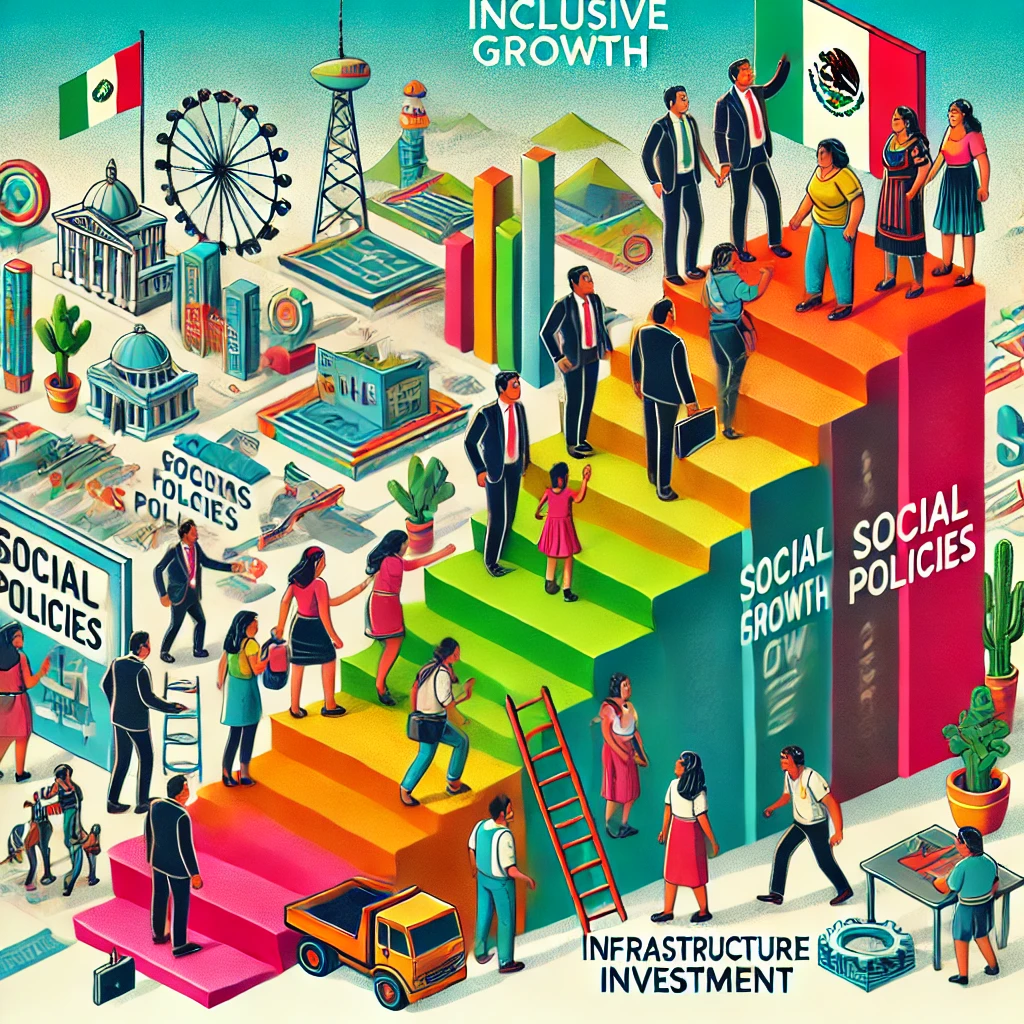Mexico Can Eradicate Extreme Poverty in the Short and Medium Term, Says World Bank Report
Mexico’s Strategy for Poverty Reduction: Inclusive Growth, Efficient Social Policies, and Infrastructure Investment.

The eradication of extreme poverty in Mexico is a realistic and achievable goal in the short and medium term, according to the latest Poverty and Equity Report on Mexico by the World Bank. The report, presented at the Faculty of Economics of the National Autonomous University of Mexico (UNAM), outlines key poverty trends over the past two decades and identifies three priority intervention areas: fostering inclusive growth, enhancing social policies, and investing in infrastructure to reduce vulnerability.
Economic Growth and Poverty Reduction Targets
Mexico has made progress in reducing poverty, though at a slower rate than other nations with similar economic profiles. According to the report, if Mexico’s per capita GDP grows by 2% annually from 2024 to 2030, the poverty rate could decrease from 21.8% to 15.4%. A growth rate of 3% could further reduce poverty to 13.4%. However, economic growth alone is insufficient—the challenge lies in making growth inclusive to ensure the benefits reach the most vulnerable sectors.
To achieve this, the report highlights three critical areas for improvement:
- Enhancing Female Workforce Participation: More opportunities for women in the labor market will contribute to economic empowerment and poverty alleviation.
- Improving Rural Economic Conditions: Addressing disparities in rural areas can significantly reduce poverty among agricultural and indigenous communities.
- Expanding Formal Employment Opportunities: Strengthening job security and increasing access to formal employment will lead to greater financial stability and access to social benefits.
"Economic growth must be inclusive to ensure that the most vulnerable sectors benefit directly. Investing in access to decent and formal employment is essential for sustainable poverty reduction," stated Mark R. Thomas, World Bank Country Director for Mexico, Colombia, and Venezuela.
Strengthening Social Policies
The report recognizes the impact of Mexico’s existing social programs but identifies opportunities to enhance their reach and effectiveness. Expanding coverage, improving efficiency, and making programs more progressive will accelerate poverty reduction. Additionally, strengthening access to social security and healthcare services is essential to reducing extreme poverty linked to social deprivation.
Education is another crucial factor in poverty reduction. The report calls for improving not just access to education but also retention rates and the quality of education from early childhood to higher education. Ensuring that young people acquire the necessary skills for the labor market will enhance their economic prospects and overall well-being.
Investing in Infrastructure and Climate Resilience
Continued investment in physical and social infrastructure is crucial to reducing vulnerability, particularly in light of climate change. Approximately one-third of Mexico’s population is exposed to at least one severe climate-related event, posing risks to poverty reduction efforts.
To mitigate these risks, the report suggests:
- Improving access to essential services such as sanitation, financial services, and transportation.
- Strengthening road networks to enhance connectivity and economic opportunities.
- Developing adaptive social protection mechanisms to bolster the resilience of the most affected communities.
Expert Discussions and Future Prospects
The report was presented by Samuel Freije-Rodríguez, Lead Economist at the World Bank, during an event featuring distinguished academics and policymakers, including Lorena Rodríguez León, Director of the Faculty of Economics at UNAM; Marcela Amaro Rosales, Director of the Institute of Social Research at UNAM; Gerardo Esquivel, an academic at UNAM and El Colegio de México; and Mark R. Thomas of the World Bank.
The discussion will continue this week at El Colegio de México, where experts will further analyze the report’s findings and propose strategies for implementation.
The World Bank report concludes that Mexico has already demonstrated that poverty reduction is possible. By prioritizing inclusive economic growth, strengthening social policies, and investing in resilient infrastructure, the country has a unique opportunity to eradicate extreme poverty within the short to medium term and foster a more equitable and sustainable future.
- READ MORE ON:
- Mexico
- World Bank
- Poverty
- National Autonomous University of Mexico










